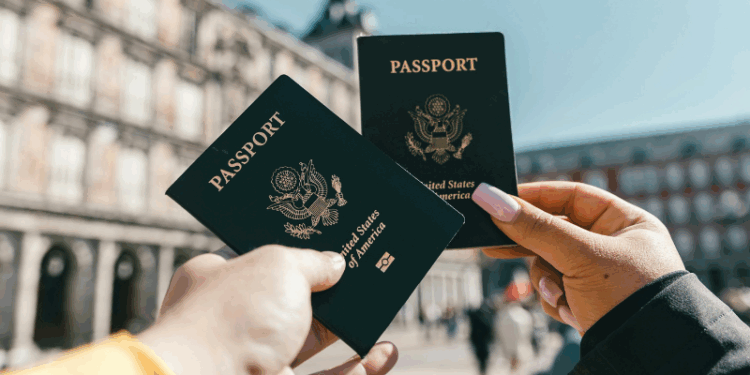The Supreme Court on Thursday temporarily allowed the Trump administration to require U.S. passports to display a person’s biological sex, overturning a lower court order that had let transgender and nonbinary individuals choose their gender designation.
In a 6-3 decision, the court froze a Massachusetts federal judge’s injunction that had allowed applicants to select “M,” “F,” or “X” to match their gender identity. The unsigned majority opinion stated that showing a passport holder’s sex at birth “no more offends equal protection principles than displaying their country of birth,” calling both historical facts rather than discriminatory acts. The court noted that the administration is likely to succeed in its case and cited potential foreign policy concerns.
Justice Ketanji Brown Jackson, joined by Justices Sonia Sotomayor and Elena Kagan, dissented, highlighting the difficulties faced by transgender Americans. She observed that the policy forces individuals to either use a gender-incongruent passport or avoid activities that require one, such as traveling or opening bank accounts. Jackson emphasized that the harm is “palpable” and criticized the majority for not addressing the plaintiffs’ situation.
The policy reverses a rule from the Biden administration that allowed applicants to self-select their gender, including an “X” marker. It defines “sex” as an individual’s biological classification at birth and requires all government-issued documents, including passports, to reflect that classification.
Solicitor General John Sauer argued that passports communicate official information to foreign governments and that private citizens cannot compel the government to use a sex designation contrary to policy and “scientific reality.”
The class-action lawsuit challenging the policy, filed by transgender, nonbinary, and intersex individuals, will continue in lower courts. Plaintiffs maintain that passports should reflect the gender people live as and express, rather than their sex assigned at birth.










